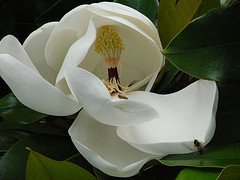Bride Jemima Goldsmith: Why I chose Islam.
02/04/2009| IslamWeb
Sunday Telegraph, May 28, 1995
When Jemima Goldsmith, the 21-year-old daughter of billionaire Sir James, married Imran Khan she embraced not only the world's most handsome sportsman but also the Muslim faith, taking the name Haiqa. Here, in an exclusive account, she tells how she journeyed from the glamorous society of London to the austere religion of Lahore
By Jemima Goldsmith
THE media present me as a naive, besotted 21-year-old who has made a hasty decision without really considering the consequences - thus effectively condemning herself to a life of interminable subservience, misery and isolation. Although I must confess I have rather enjoyed the various depictions of a veiled and miserable "Haiqa Khan" incarcerated in chains, the reality is somewhat different. Contrary to current opinion, my decision to convert to Islam was entirely my own choice and in no way hurried. Whilst the act of conversion itself is surprisingly quick - entailing the simple assertion that "there is only one God and Mohammed is His Prophet" - the preparation is not necessarily so speedy a process. In my case, this began last July, whilst the actual conversion took place in early February - three months before the Nikkah in Paris.
During that time, I studied in depth both the Quran and the works of various Islamic scholars (Gai Eaton, the Bosnian president Alia Izetbegovic, Muhammad Asad) , thus giving me ample time to reflect before making my decision. What began as intellectual curiosity slowly ripened into a dawning realisation of the universal and eternal truth that is Islam. In the statement given out a week ago, I particularly stressed that I had converted to Islam entirely "through my own convictions". The significance of this has been largely ignored by the press. The point is that my conversion was not, as so many have assumed, a pre-requisite to my marriage. It was entirely my own choice. Religiously speaking, there was absolutely no compulsion for me to convert prior to my marriage. As it explicitly states in the Quran, a Muslim is permitted to marry from "the People of the Book" - in other words, either a Christian or a Jew. Indeed, the Sunnah - which describes the life of the Prophet - shows that the messenger of Islam himself married both a Christian and a Jew during his lifetime.
I believe that much of this hostility towards my marriage and conversion stems from widespread misconceptions about an alien culture and religion. Not only is there a huge gulf between the Western view of Islam and the reality, but there is in some cases also a significant distinction between Islam based directly on the Quran and the Sunnah and that practised by some Islamic societies. During the last year I have had the opportunity to visit Pakistan on three separate occasions and have observed Islamic family life in practice. Thus, to some extent I now feel qualified to judge for myself the true role and position of women in the religion. At the risk of sounding defensive, I would like to point out that Islam is not a religion which subjugates women whilst elevating men to the status of mini-dictators in their own homes.
I was able to see this first-hand when I met Imran's sisters in Lahore: they are all highly educated professional women. His oldest sister, Robina, is an alumnus of the LSE and holds a senior position in the United Nations in New York. Another sister, Aleema, has a master's degree in business administration and runs a successful business; Uzma is a highly qualified surgeon working in a Lahore hospital, whilst Rani is a university graduate who co-ordinates charity work. They can hardly be seen as "women in chains" dominated by tyrannical husbands. On the contrary, they are strong-minded independent women - yet at the same time they remain deeply committed both to their families and their religion. Thus, I was able to see - in theory and in practice - how Islam promotes the essential notion of the family unit without subjugating its female members.
I am nevertheless fully aware that women are sometimes exploited and oppressed in Islamic societies, as in other parts of the world. Judging by some of the articles which have appeared in the press, it would seem that a Western woman's happiness hinges largely upon her access to nightclubs, alcohol and revealing clothes; and the absence of such apparent freedom and luxuries in Islamic societies is seen as an infringement of her basic rights. However, as we all know, such superficialities have very little to do with true happiness. Besides, without in any way wishing to disparage the culture of the Western world, into which I was born, I am more than willing to forego the transient pleasures derived from alcohol and nightclubs; and as for the clothes I will be wearing, I find the traditional shalwar kameez (tunic and trousers) worn by most Pakistani women far more elegant and feminine than anything in my wardrobe.
Finally, it seems futile to speculate on my chances of marital success. Marriage, as Imran's father has been quoted as saying, is indeed "a gamble". However, when I see that in a society based on family life the divorce rate is just a fraction of that in European or American society, I cannot see that my chances of success are any less than if I had chosen to marry a Westerner. I am all too aware of the enormous task of adapting to a new and radically different culture. But with the love of my husband and the support of his family I look forward to the challenge wholeheartedly, and would like to feel that people wish me well. Whilst I do appreciate the genuine concerns of many, I must confess to feeling somewhat bewildered by all of the commotion.
www.islamweb.net

